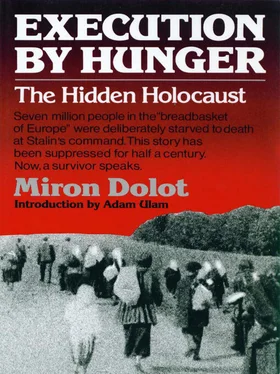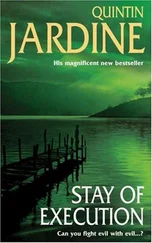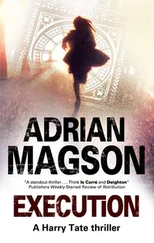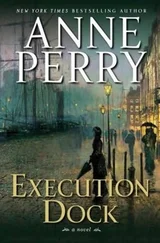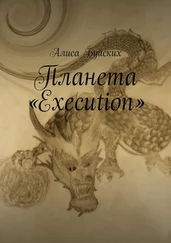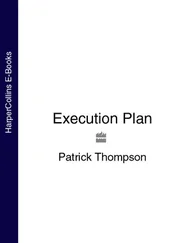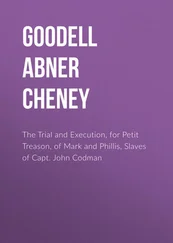“You heard the judge,” Comrade Cherepin angrily hissed at Petro, looking at him as if he were a troublesome insect. “Your family name, given name, and patronymic.”
“But he knows my name! All know…” started Petro.
“Your name!” repeated Comrade Cherepin, raising his voice.
Petro first looked helplessly around as if trying to find out what was happening, then obediently answered. A stream of other questions followed.
“Date and place of birth?”
“Occupation and place of work?”
“Nationality?”
“Membership in the Communist Party?”
“Name of parents?”
“Their social status before the Revolution?”
“Did they have hired hands?”
This was the beginning of a long and exhaustive interrogation. Petro had to relate a detailed biography, from infancy to the present day. Comrade Cherepin was especially interested in what Petro’s parents, grandparents, relatives, as well as his wife’s parents, grandparents, and relatives did before and during the Revolution and Civil War. Were they civil or military servants under the tsarist regime? Were they rich or poor? Did they exploit hired hands? Did they oppose the October Revolution?
To us villagers, this kind of interrogation was a strange and frightful phenomenon. Not many of us knew our exact date of birth, nor the birthdays of our relatives. The deceased grandparents and other family members were dearly remembered, but probably not one of us knew whether they had had hired hands or not. So at first we couldn’t understand what Petro’s ancestors had to do with this trial. But, as the interrogation progressed, it struck us with staggering clarity that we had to answer now for what our ancestors had done.
Petro knew approximately how old he was, but he did not know when he was born for the simple reason that his birth had not been recorded.
Comrade Cherepin interpreted this as contempt of court. Then Petro could not give a detailed account of his whereabouts and activities before and during the October Revolution and Civil War. This was interpreted as an attempt by Petro to hide his counterrevolutionary activities. As the interrogator delved deeper into Petro’s personal life, it was revealed that his father was a noncommissioned officer in the tsarist army during World War I. No one in the village, including Petro himself, knew exactly what rank his father had held, but he was considered a sort of hero by the villagers for not many farmers could attain even this kind of rank in the tsarist army. However, he had been killed in action on the front lines and forgotten in the village. Even Petro thought there was nothing special in having rank, whatever it had been, to make a fuss about. But Comrade Cherepin was of another opinion.
“So, so…your father was a noncommissioned officer in the tsarist army, eh…?” he deliberately emphasized the word “officer.” At that time it was anathema. “Tell me,” he continued, after a pause, “how many poor farmers were noncommissioned officers in the tsarist army?”
“How should I know?” Petro responded.
“Not many,” Cherepin said, staring at Petro. “Only those farmers could get promotions who loyally served the tsar and his regime. Isn’t that true?”
“My father was—” Petro wanted to say something.
“You were not invited to talk!” Comrade Cherepin cut him short. “We know your kind; we still remember that time. Your father was promoted because he was loyal to the tsar; and having been promoted, he was that army slave driver we all hated. If he hadn’t been killed, he would have become a counterrevolutionary; an enemy of the people.”
“But—” Petro tried to speak again.
“Shut up!” Comrade Cherepin shouted angrily.
“But, he was killed three years before the Revolution,” Petro managed to shout.
Comrade Cherepin did not take time to interrupt him. Now he sat staring at Petro in disgust. After a moment of silence, he leaned toward Sydir, the judge, and whispered something. The latter promptly ordered Petro to sit down.
Then he called the defendant Antin. Antin also had to answer a multitude of questions, but his interrogation did not last long. Soon Comrade Cherepin turned to the judge who automatically ordered Antin to sit down, and announced that Comrade Cherepin was to speak. This was supposed to be the prosecutor’s charge, but in reality it was another political speech filled with stilted phrases. From that speech we understood the charges against Petro and Antin were accusations of agitation against the Communist Party and the Soviet government and of spreading Ukrainian nationalism. Of course, they were labeled counterrevolutionaries and enemies of the people. He singled out Petro as a son of a former tsarist noncommissioned officer and someone who could become a saboteur at any time. Thus he recommended that their case be submitted to the People’s Court and to the state security organs.
When Comrade Cherepin finished speaking, somebody started to applaud, and others followed. After all, we had received a thorough lesson in applauding. Then it became quiet, as in a church.
“What crimes did they commit?” somebody shouted from the rear of the room.
“What did they do?” someone else asked from another area.
The audience grew animated. More voices demanded to know the defendants’ crimes. Sydir, the judge, like an obedient dog, looked at Comrade Cherepin. The assessors shifted uncomfortably in their chairs.
But Comrade Cherepin was ready to deal with any emergency. Without paying any attention to the judge he slowly rose to his feet, and in a matter-of-fact manner, offered an explanation.
“Whereas the defendants’ crimes consist of their anti-Party agitation, as well as their mocking of the Party and government and me, your Party representative; and whereas they propagated Ukrainian nationalism; and whereas the mention of their specific crimes publicly would mean repetition of the defendants’ crimes against the Party and government, this court is of the opinion that naming their crimes publicly would be harmful to the Party and government.”
That was all. This statement was rather confusing to us but somehow we got the message.
“Do you have any other questions?” Comrade Cherepin casually asked.
There were no more questions.
Then we were surprised to hear that the defendants were to be given the chance to speak in their own defense. Comrade Cherepin whispered something to Sydir, the judge, who then announced that the defendant Antin would speak first.
Antin, holding his soiled cap, and shifting from one foot to the other, did not know what to say. He only repeated over and over that he did not remember what he had said or done on that Sunday morning because he had been drunk.
Then, it was Petro’s turn. Although at first he was confused, he quickly regained his composure. First, he looked hard and long at the officials before shifting his gaze to the members of the court with a sympathetic gesture that showed he realized their plight. For some reason, he then glanced at Antin’s ragged shirt and his own feet which were wrapped in rags. Then he started to speak.
“Comrades…” he said, using the official title.
“We aren’t your comrades,” interrupted Comrade Cherepin. “You are a defendant here!”
“And who is asking the questions here?” Petro shot back. “I thought Sydir was the judge!”
Someone burst into laughter. Sydir, the judge, who all this time was sitting as straight as a ramrod in his chair, now gazed at the members of the court, and found them looking at him and then at each other.
But this atmosphere of confusion did not last long. Comrade Cherepin jumped to his feet.
“I am asking the questions here!” he shouted with arrogance. “And what I am asking must be answered, for I am the representative of the Party.”
Читать дальше
